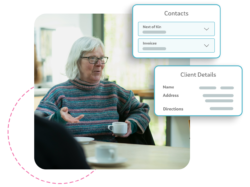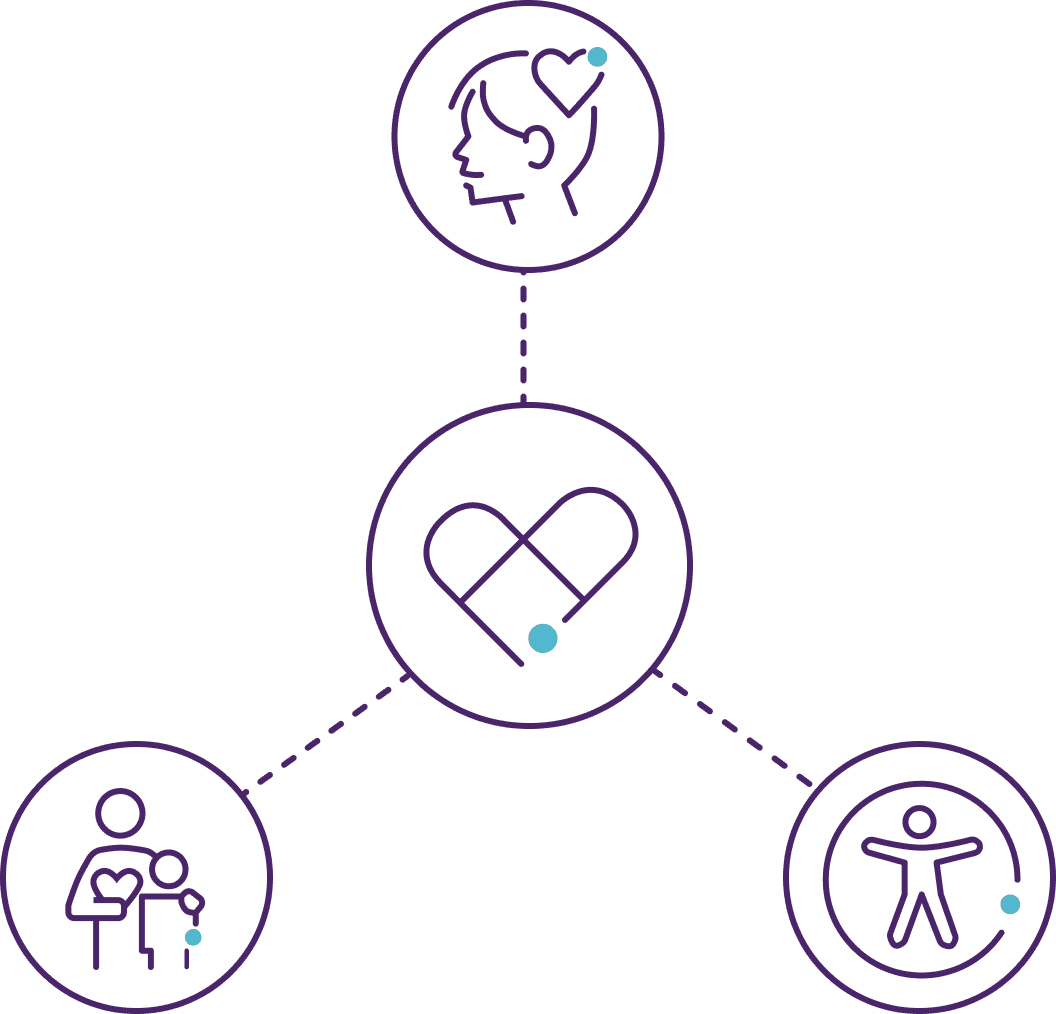The Role of Software in Care Plans: Transforming Personalised Care
The Role of Software in Streamlining Care Planning:
Like other industries, the care industry has seen a major digital transformation over the past decade, resulting in a gradual shift away from traditional paper-based, or multi-system care planning, with all-in-one digital care planning software becoming the new norm.
This is in part caused by the increased requirement for fully personalised care that is fully tailored to an individual user’s needs and the rise of smartphones and has further emphasised the benefits of using an all-in-one digital care planning software over traditional methods.
Care planning software enables providers to create robust and comprehensive digital care plans which can be then used to determine the type and level of care that is required for each client.
Digital care plans can be templated and personalised to a service user’s specific goals, allowing for the efficient planning of highly personalised care, tailored on a person-to-person basis, significantly reducing the time investment required from staff to develop care plans, freeing them up to do what they do best, provide high-quality care!

Digital care planning software can help to empower service users to take on a more active role in their care by providing them with access to their unique personalised care plans which they can then use to track their progress towards their care goals and easily communicate with their care provider.
In doing so, care providers are also increasing the visibility for all key stakeholders into the care planning and provision processes, ultimately enhancing the levels of trust between key stakeholders and increasing levels of satisfaction with their care.
As personalised care plans require the service user’s input, providers have further embraced digital care planning software thanks to its digital diary functionality, which facilitates the structured and thoughtful approach to recording a service user’s daily activities and allows them to reflect on their experiences throughout the day.
These digital diary entries can then be shared with all key stakeholders and can be used to form a strong foundation for the user’s next care plan. Moreover, as Care plans are required to be reviewed and updated regularly, digital diary entries can be reviewed to identify any trends that are occurring, adjusting their care provision accordingly.
The Impact of Electronic Care Planning on Service User Outcomes:
Digital care planning software serves as a centralised platform for carers to record and access essential information about a client’s needs, preferences, and treatment plan.
These plans form the cornerstone of high-quality care and bring a unique mix of benefits when compared to their traditional pen-and-paper counterparts.
By incorporating a digital care planning software, providers will typically see a significant reduction in the number of medication errors occurring as most modern care plan software’s come with robust medication management functionality that is linked with national healthcare databases.
This medication management functionality monitors and tracks the total number of medications on a carer’s person and will automatically update when the medication is administered, eliminating the need for care providers to memorise and track their medication stock, ultimately freeing them up to do what they do best, provide excellent care.
As care plan software is linked with national databases, providers are also able to access a full overview of all medications on their person, their correct dosages, and its effects when administered with a different medication.
This enables them to identify any potential adverse reactions from occurring prior to administering a dosage.

Furthermore, care plan software also prompts staff with email notifications when a client is due to receive a dosage of medication and requires them to leave a comment or note when they are administering the dosage.
This substantially reduces the likelihood of medication errors occurring as providers won’t be able to clock-out of their shift if they don’t complete all of their required care tasks, with all key stakeholders getting notified of the missed event as it occurs.
Another key impact digital care planning software has on service users is the enhanced monitoring functionality they bring. For example, real-time monitoring of vital signs and other health parameters, can enable early detection of changes in a client’s condition resulting in timely interventions and potentially preventing hospital admissions.
Integrating Digital Care Plans for Improved Client Outcomes:
Writing personalised care plans can be very time-consuming for providers who still utilise traditional methods such as pen-and-paper or multiple-connected systems to support their care provision, and that’s where digital care planning software comes in!
Care plan software acts as a centralised platform for care providers to record and access essential information about a client and comes packed with functionality, such as a highly configurable template library, designed to help streamline the creation of personalised care plans, reduce the administrative burden for your carers, and ultimately improving service users care outcomes.

